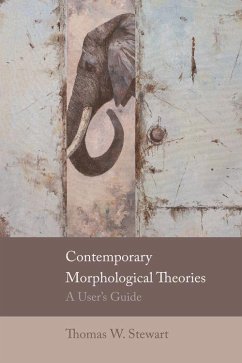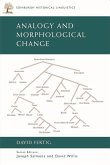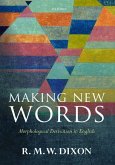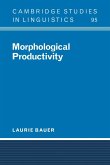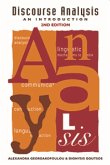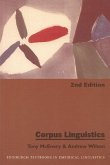'Stewart's engagingly written and thought-provoking survey reveals an impressive command of disparate models, skilfully dissected and compared. This is a unique, and uniquely valuable, resource.' Andrew J. Spencer, Department of Language and Linguistics, University of Essex 'In this unique guide, Stewart presents cogent synopses of over a dozen current theories of morphology, then puts them to the test on a level playing field, in a kind of morphological triathlon comprising Scottish Gaelic case marking, Georgian verb agreement and Sanskrit gerund formation. An indispensable work of reference.' Gregory Stump, University of Kentucky What are words? How are they composed? And what are the relationships between them? In spite of the central position that the concept 'word' has amongst the basic units of language structure, there is still no real consensus as to how this concept, or network of related concepts, should be defined. Addressing the needs of language researchers and advanced linguistics students, Contemporary Morphological Theories: A User's Guide provides a valuable guide to existing approaches in morphological analysis. Analysing three descriptive challenges for morphology (Scottish Gaelic nouns, Georgian verbs, and Sanskrit compound verbs), and comparing and contrasting the backgrounds and fundamentals of leading approaches to word structure and lexical relationships, this book explores the way each framework proceeds from its author's basic assumptions, revealing how they can either complement or compete with other approaches. Thomas W. Stewart is Assistant Professor of Linguistics at the University of Louisville Cover image: Detail from 'Pig Turning Into Elephant' by Shen Hao Courtesy of Asia Art Center Cover design: Clifford Hayes [EUP logo] www.euppublishing.com

